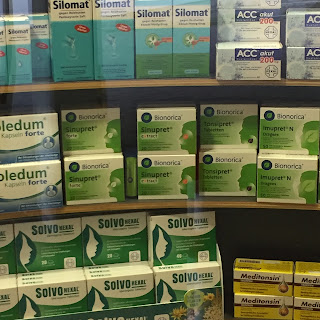Earlier in Germany, ownership was determined by 3 different routes:

"Privileg"-
A land owner or a commune/ parish could award a pharmacy to a pharmacist who could later choose to sell it or pass it on in an inheritance.
"Realkonzession"
The state could grant authority to an individual to own a pharmacy. The owner could later choose their successor and present their replacement to the state.
"Personalkonzession"
The state lends a pharmacy to an individual. The pharmacy could not be sold or inherited further. When the owner decided to leave the pharmacy, it would be returned to the state and the state could then lend it to someone else.
 |
| Mometasone Nasal Spray |
Many believe the independence of the pharmacist and their ownership is imperative for the pharmacy to be able to act, adjust and provide healthcare with the best interests of its patients as a core focus. In return by providing reliable, high quality healthcare the owning pharmacist ensures the longevity and success of their own investment and maintains their pharmacist license.
 |
| Health Center |
There is political discussion now in Germany reviewing pharmacy ownership laws and what changes would occur if corporations and chains were granted the right to own and operate pharmacies. Some of the key questions are:
Would granting corporations and chains the rights to own pharmacies impact the supply of medications? How?
Would this shift healthcare focus from patients to shareholders?
Would there be benefits or disadvantages to communities or the public healthcare system?
Hmmmm, What are your thoughts?
 |
| Cough and Cold Meds |


No comments:
Post a Comment